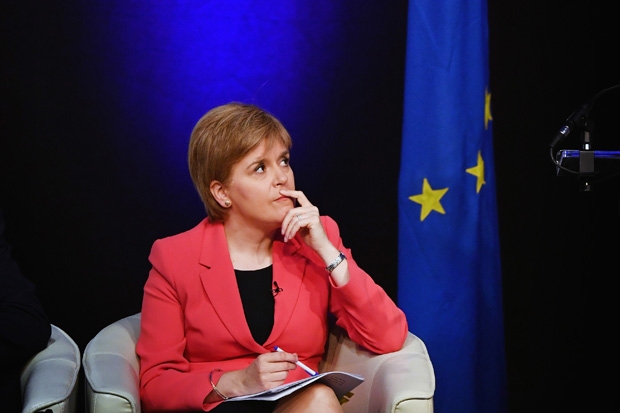The SNP appears to be on the verge of changing one of its core beliefs – full membership of the European Union. Senior party figures have revealed, in a piece in the Times today, that there is a desire in the higher echelons of the SNP to ditch this long-standing tenet of party policy.
Instead, they want the party to adopt a Norway-style model. This would see an independent Scotland outside the EU but inside the single market, after Brexit. Scotland could then join the EU at a later date, if it wished to do so but it would not immediately join the back of the queue for EU membership, as has always been assumed.
It would be a policy earthquake for the party to ditch something like EU membership that has been central to its message since the 1980s. But it would also be a canny approach. Most importantly, it would allow the SNP to attract Eurosceptic voters and counter some of the key arguments against independence which will be thrown against them.
It would also shift the ground under the looming Scottish independence referendum, which is what the SNP has to do if it is to really make this the different contest it has to be for the Yes side to win.
Under the new approach, if Scots voted for independence, this would then result in Scotland being in the European Free Trade Area and part of the European Economic Area agreement, but outside the EU – the same as Norway.
Scotland would have to pay the EU for this privilege and it would have to allow free movement of people from the EU to Scotland. It would also mean that Scotland would not have a say on EU rules. But this option would give Scotland control over fishing and it would allow the country to be ‘semi detached’ from both Europe and the UK.
Crucially, though, this option would also leave Scotland and the UK outside the EU customs union and it is this that SNP managers believe would allow an open border for trade between Scotland and the rest of the UK – retaining this crucial market. They argue there would not need to be a hard border between Scotland and England because both would be outside the EU customs union.
This plan does raise some big questions. One is immigration: if Scotland allowed free movement of people from Europe and England did not, there would be nothing to stop Europeans coming into Scotland and crossing the non-existent border with England. The SNP argues that England has the ability to crack down on illegal immigration through employment and housing checks anyway – but that is obviously open to question.
There is also the thorny issue of currency. Under the SNP plans, this ‘semi independent’ Scotland would have its own currency, pegged either to the pound or to the Euro (probably the pound). Leaving the Sterling zone would leave Scotland economically vulnerable and this remains the hardest of the hard sells for the SNP as it contemplates another referendum on independence.
But, set against that would be this new ‘semi detached’ approach to Europe. A poll published yesterday found that more than a third of Yes voters from 2014 want to stay outside the EU and SNP strategists believe this new approach would keep these voters behind their independence cause. They also believe it would appeal to unionist Remainers who do not want to leave the European single market but also don’t really want to leave the UK single market.
Such an approach would indeed be a radical move but it reflects the changed political dynamic in the UK where the EU faultline is now so deep. It also shows the SNP is thinking ahead, is already planning for the next independence referendum and knows how it wants to win. As such, it has miles ahead of its opponents.
There is one other crucial point too: this is the same plan the SNP has put to the UK Government. It has asked Theresa May to implement this ‘Norway-style’ model for Scotland under the current, devolved, settlement.
There appears to be no chance of that happening. As a result, the SNP could go to the country once again, but this time arguing that the party had been fair and reasonable, had put a compromise solution to the UK Government which it had rejected, and ask the people to vote for it in defiance of the UK Government. That might prove to be an appealing case for many Scots, Remainers and Brexiteers alike.






Comments